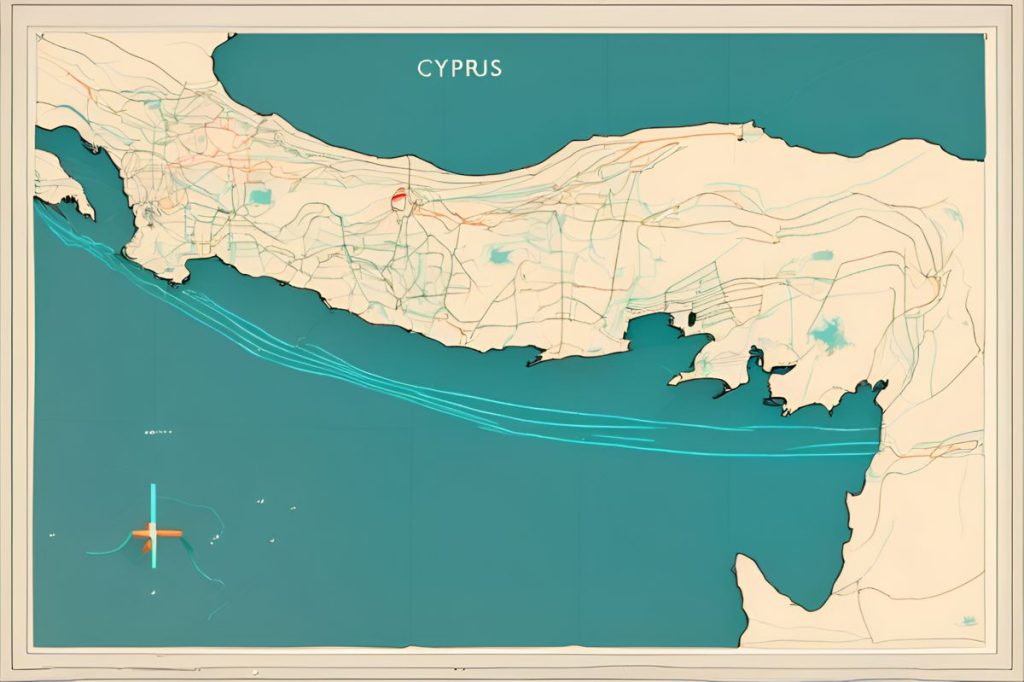The EU plans to boost Cyprus’ defence and energy industries by integrating them into key EU programs and supporting specific projects. President Nikos Christodoulides and EU Commissioner Thierry Breton discussed further strategies at a recent meeting in Nicosia, highlighting Cyprus’ vital role in European security and energy supply.
How is the EU planning to support Cyprus’ defence and energy industries?
The EU plans to bolster Cyprus’ defence and energy industries by:
- Integrating Cyprus into key EU defence industry programs.
- Enhancing Cyprus’ strategic autonomy in energy.
- Supporting specific projects aimed at consolidating EU autonomy in defence, security, and energy.
- Discussing these strategies further at the upcoming European Council meeting.
Strengthening Cyprus’ Strategic Position
The European Union is keenly aware of the strategic significance of Cyprus, particularly in light of the current geopolitical climate. At a recent meeting in Nicosia, the President of Cyprus, Nikos Christodoulides, sat down with Thierry Breton, the European Commissioner for the Internal Market, to discuss ways the EU could bolster Cyprus’ defence and energy industries.
Cyprus’ easternmost location positions it uniquely within the EU, rendering it vitally important for matters relating to defence and energy supply. With geopolitical tensions on the rise, the island’s role in these sectors is becoming increasingly focal. Thierry Breton acknowledged Cyprus’ participation in key EU defence industry programs and innovation, highlighting the nation’s growing importance.
Boosting Defence and Energy
The dialogue between President Christodoulides and Commissioner Breton centered around the European defence industry strategy, which is slated for further discussion at the European Council. Breton and Christodoulides delved into how the EU could extend its support to Cyprus’ defence sector, which is considered crucial for the island as well as the whole of Europe.
Energy issues, also a part of Breton’s portfolio, were on the table, emphasizing the need for the EU’s strategic autonomy in this sector. Commissioner Breton asserted that supporting initiatives in Cyprus is vital for European solidarity, especially during trying times. The presidency of Cyprus, via a statement post, expressed the need to embark on specific projects that could consolidate the EU’s autonomy in defence, security, and energy.
Cyprus’ Economic Transition and Policy Pillars
Energy Minister George Papanastasiou also met with Commissioner Breton, briefing him on Cyprus’ dual transition: energy and digital. Embracing this transition is pivotal for enhancing industrial competitiveness and, by extension, the economy. Minister Papanastasiou outlined Cyprus’ tripartite energy policy agenda aimed at combating climate change, reducing household and business energy costs, and establishing electrical connections with Greece and Israel.
Cyprus is undergoing a significant period of change, with recent discoveries of natural gas reserves in the Eastern Mediterranean propelling the country into a more influential position in the regional energy dynamics. The island’s energy policy, focusing on the import of natural gas, expanding renewable energy use, and energy-saving measures, reflects a broader commitment to sustainability and economic stability.
Collaboration and Future Dialogue
As part of the ongoing collaboration between Cyprus and the European Union, discussions will continue to explore various avenues for supporting and enhancing the island’s defence and energy sectors. These sectors are not only key to Cyprus’ future growth but also play a substantial role in the broader European context of security and energy independence.
The upcoming European Council meeting is expected to be a pivotal moment for Cyprus, with the potential to secure more robust support from the EU. The island’s strategic geographical position, coupled with its active participation in EU programmes and recent energy developments, underscores the importance of Cyprus in the European Union’s plans for a secure and sustainable future.
What are the key areas of focus for the EU in supporting Cyprus’ defence and energy industries?
The EU plans to support Cyprus’ defence and energy industries by integrating the nation into key EU defense industry programs, enhancing its strategic autonomy in energy, supporting specific projects aimed at consolidating EU autonomy in defense, security, and energy, and discussing further strategies at the upcoming European Council meeting.
Why is Cyprus’ strategic position important in the context of European security and energy supply?
Cyprus’ location at the easternmost point of the EU makes it strategically significant for matters relating to defense and energy supply. With increasing geopolitical tensions, the island’s role in these sectors is becoming more crucial, highlighting the importance of bolstering Cyprus’ defense and energy industries.
What is Cyprus’ dual transition that was discussed with Commissioner Breton?
Cyprus’ Energy Minister briefed Commissioner Breton on Cyprus’ dual transition focusing on energy and digital transformation. Embracing this transition is essential for enhancing industrial competitiveness and the economy. Cyprus’ energy policy agenda includes combating climate change, reducing energy costs, and establishing electrical connections with Greece and Israel.
How will ongoing collaboration between Cyprus and the EU contribute to the future growth of the island’s defense and energy sectors?
Ongoing collaboration between Cyprus and the EU will continue to explore avenues for supporting and enhancing the island’s defense and energy sectors. These sectors are not only crucial for Cyprus’ future growth but also play a significant role in the broader European context of security and energy independence. The upcoming European Council meeting is expected to be a crucial moment for securing more robust support from the EU.

